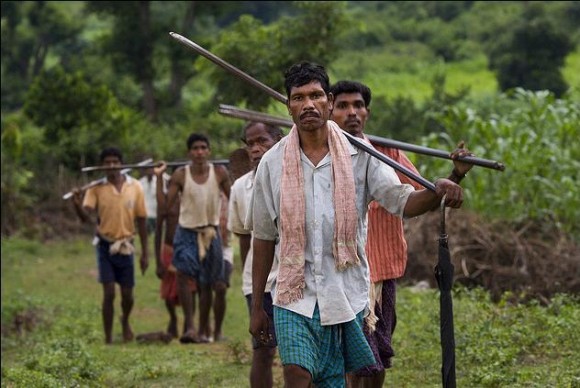This Sunday, David Cameron and Vice President Michel Temer of Brazil will challenge global leaders to work to address hunger and malnutrition at the Global Hunger Event. As that event takes place, many international organisations – governmental, multilateral, civil society – continue to fight hard to tackle food security and hunger issues all over the world, including in the Sahel and the Horn of Africa.
 The Food and Agriculture Organisation (FAO) is one of them. It is a UN agency that does vital work, leading international efforts to defeat hunger. However, despite its importance the Multilateral Aid Review confirmed that as an organisation it needs to perform much better if it is to deliver the outcomes that we all want to see.
The Food and Agriculture Organisation (FAO) is one of them. It is a UN agency that does vital work, leading international efforts to defeat hunger. However, despite its importance the Multilateral Aid Review confirmed that as an organisation it needs to perform much better if it is to deliver the outcomes that we all want to see.
Part of the issue is being able to show the impact that the FAO has. This isn't easy. The more I've worked with colleagues in FAO, the more I understand how fundamental FAO treaties, standard setting and technical advice are to developing countries working to provide for their people. But to be honest, anyone would be forgiven for not immediately grasping how a Convention on, say, plant protection, agreed by representatives in Rome, really makes a difference to a poor village in, say, India.
So we thought we'd go and find out. If DFID could help find a way to establish the links in that chain, and if FAO could present the information so that people can more readily understand their work and impact, perhaps we could help to address some of the organisational challenges FAO faces – namely, ensuring that all of its activities are contributing effectively to the desired outcomes, and demonstrating and communicating in a systematic way the results achieved by the agency.
Let me give this a go. The International Plant Protection Convention (IPPC) - a FAO Treaty with 175 countries as contracting parties – is about the movement of plants and plant products across international boundaries. The aim is to control the spread of pests and diseases and to protect local eco-systems.
In India it worked like this. FAO supported India’s Department for Agriculture and Cooperation, and the relevant national agencies, to analyse the economic and ecological impact of adopting the plant health measures and to discuss issues with trading partners. On adoption of the measures in India and by regional trading partners, FAO India was there to support implementation of Pest Risk Assessments and Surveillance Systems (to minimise the spread of pests through trade) and approaches to plant protection (to protect local plants and eco-systems). The ultimate result was fewer pests in the country, higher crop production and better pasture, grazing plants and forests.

Still confused? Look at it like this. Both the Eurpean Union and US (for example) demand rigorous checks to ensure that the plant pests and food-borne pathogens don't make it past national borders. If India did not conform to plant health standards, and was not able to guarantee good quality crops and safe, well managed eco-systems, would it be able to play its role (and India is poised to play an even greater one) in world markets? Undoubtedly not. Preventing the spread of pests and diseases also protects livelihoods, including those of India's rural poor.
I was convinced, and impressed with both the results that I saw in Chennai in India (for example) and with the strong working relationship between FAO and India as an active member of the organisation. The message is getting out there – check out the new FAO Impact leaflets and see for yourself…

2 comments
Comment by Calm posted on
Let us understand that the Indian farmer should be rich and the farmed products should not be snatched away by industrialists who are starting a chain and to run this chain would soon deprive the farmer of his land.In India land for a farmer is a temple .The people of the globe confirm it by addressing it as Mother Earth.
All these programs should be to develop agriculture to international standards.This aid should not be under any circumstances be to traders or corporates.The farmer will be interested and this is a helping hand to him who is passionate about farming.Besies providing aid any corporate that has practised an unfair practise should be denounced.
It is becoming obvious with time that we start denouncing what is unfair to meet the goals set by the UN to build up a planet where peace and not grabbing prevails.
Being familiar with International laws Private laws ought to be more forceful.
Comment by Livelihood posted on
Thank you for sharing this very informative blog with us.